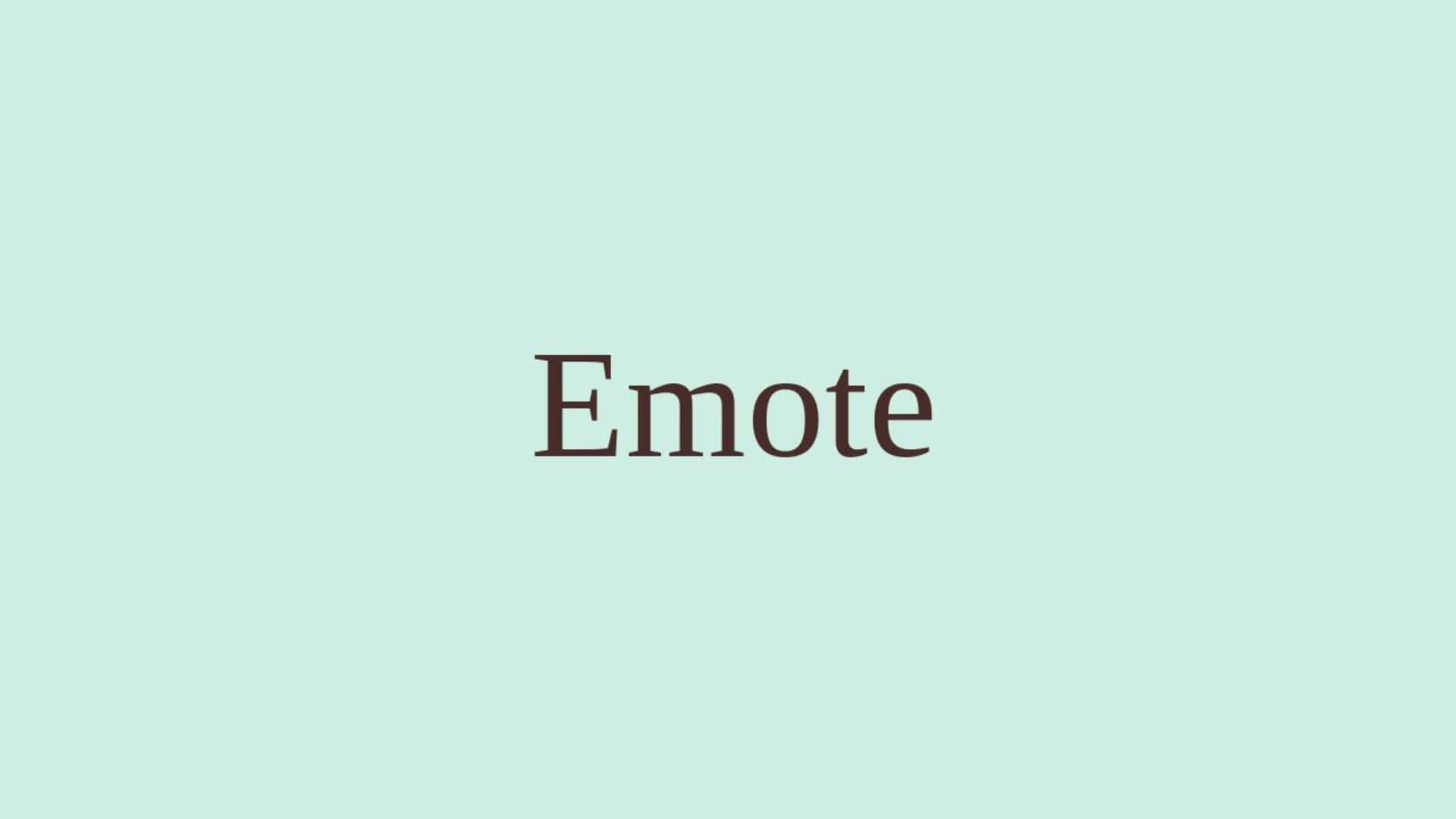Word of the Day: Emote
What's the story
The word "emote" is a verb used to describe the act of expressing emotions clearly, especially in a dramatic or exaggerated way.
It's often used in acting but can apply to everyday situations too.
When someone "emotes," they show how they feel through gestures, voice, or facial expressions.
Origin
Origin of the word
"Emote" comes from the Latin word emovere, meaning "to move out." It entered English in the early 1900s, mainly in theater contexts.
Originally used to describe actors stirring emotions in the audience, the word has since evolved to include any visible or strong emotional expression in speech or behavior.
Synonyms
Synonyms for 'emote'
Common synonyms for "emote" include express, convey, show, reveal, dramatize, act, perform, and communicate feelings.
While all relate to emotional expression, "emote" is particularly linked to visible and often theatrical displays of feelings.
It's a dynamic word used for dramatic or deeply felt emotional communication, especially in performance.
Usage
Sentence usage
Let's see how to use this word in different contexts:
"The actor began to 'emote' powerfully in the final act."
"She doesn't hesitate to 'emote' in public."
"He tried to 'emote' enthusiasm, but it felt forced."
"To connect with the crowd, she had to 'emote' genuinely."
Writing
Why use the word
"Emote" is a strong and expressive word that adds depth to your writing or speaking.
It describes not just feelings but how they're displayed outwardly.
Whether writing fiction, describing someone's reaction, or critiquing a performance, using "emote" brings your language alive with clarity, emotion, and a vivid touch.
